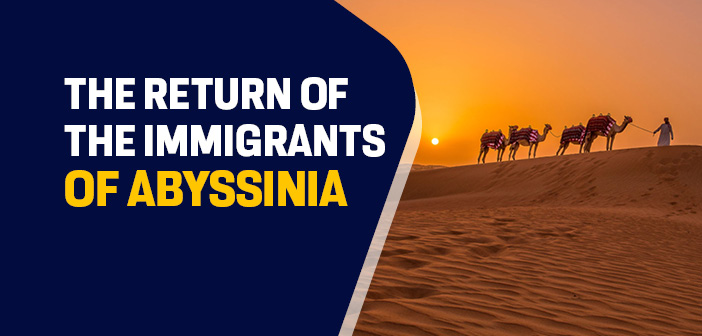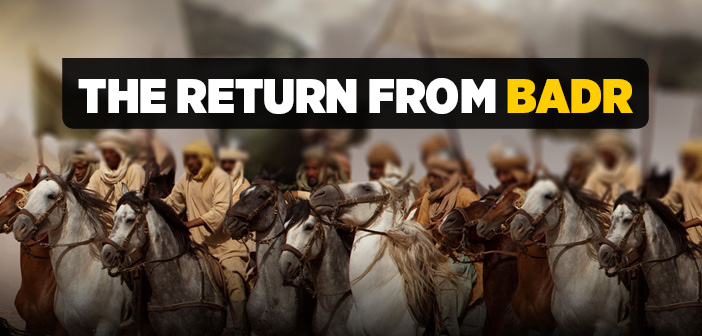What is the return of the immigrants of abyssinia?
As Khaybar was falling, a group of sixteen Companions headed by Jafar -Allah be well-pleased with him- were returning from Abyssinia to Medina. Upon finding out that the Blessed Prophet -upon him blessings and peace- was at Khaybar, the immigrants immediately proceeded there, and were soon united with him.
“You resemble me so much in appearance and behavior”, the Blessed Prophet -upon him blessings and peace- first commented upon seeing Jafar. He then added, “I do not know as to what is supposed to make me happier: the fall of Khaybar or the return of Jafar!” (Ibn Hisham, III, 414)
Jafar -Allah be well-pleased with him- was inexpressibly delighted to receive the precious compliments of the Blessed Prophet -upon him blessings and peace-, and like an innocent child, he ecstatically started turning, on one foot, around the Prophet of Allah -upon him blessings and peace- until losing control.[1]
The Blessed Prophet -upon him blessings and peace- did not forbid Jafar -Allah be well-pleased with him- from doing this. Some tariqah, or Sufi orders, later took this as an affirmation (sunnat’ut-taqriri) of the Messenger of Allah -upon him blessings and peace- and as a precedent for wajd or the state of ecstasy.[2]
Arriving alongside the immigrants was also the Ashari Tribe of Yemen. Among them was Abu Musa al-Ashari –Allah be well-pleased with him- who states:
“While in Yemen, we, the Asharis, had been informed that the Messenger of Allah -upon him blessings and peace- had appeared, upon which, together with fifty-two or fifty-three others from our tribe, we set out to immigrate next to the Messenger of Allah -upon him blessings and peace-. As the weather took a turn for the worse and became unfavorable on the way, our ship dropped us off at land of the Abyssinian Negus. There, along with his friends, we met Jafar -Allah be well-pleased with him- who said to us, ‘The Messenger of Allah sent us to this land and ordered us to remain here for a while. I suggest you also stay with us!’
And later, we eventually boarded a ship and returned all together to Medina. We were united with the Messenger of Allah just as Khaybar had fallen. So the Messenger of Allah gave us a share of the spoils of Khaybar, too.” (Bukhari, Maghazi, 38; Muslim, Fadail’us-Sahabah, 169)
[1] Ahmad, I, 108; Ibn Saad, IV, 35.
[2] The sama, or whirling, that begins after reaching an ecstatic state during the Mevlevi dhikr takes its inspiration from this very incident.
Source: Osman Nuri Topbaş, The Prophet Muhammed Mustafa the Elect II, Erkam Publications





